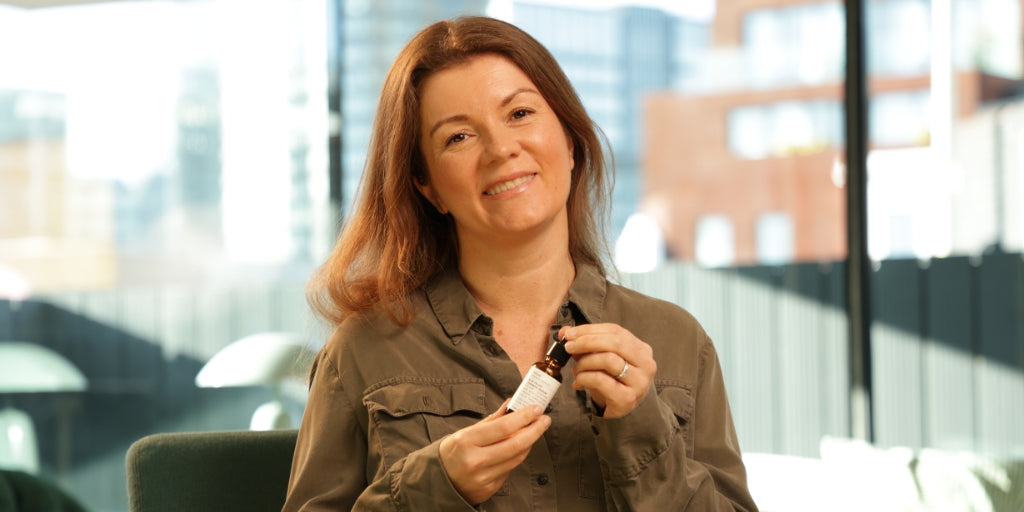We put our bodies through so much each and every day, and it is not very often that we give them the love they deserve. So, perhaps it is time to take a step away from fad diets and gruelling workout plans, and begin to love our bodies.
Whilst that may be easier said than done, here are some simple steps you can take to begin your journey to body kindness.
What is body kindness?
Body kindness is a compassionate approach to health which focuses on personalised self-care without the rules and rigidity of a one-size-fits-all diet or exercise plan. As author Rebecca Scritchfield explains, it’s about making conscious lifestyle changes to nourish our bodies and minds, informed by our own unique circumstances, instead of focusing exclusively on body image.
If you’ve ever tried to keep up with some new exercise plan or stick to that new diet everyone’s talking about, there’s a good chance that you started out strong, but eventually drifted away from it. This is completely normal – it happens to most of us! But what is often worse is all the stress and guilt that follows, for example, from missing that scheduled workout or eating that piece of cake. Constant questioning of what we can and cannot eat also creates confusion and anxiety, while in the long-term it can lead to toxic relationships with food and exercise.

This is where body kindness comes in. Instead of forcing yourself to stick to strict, short-lived regimes, by creating a personal plan tied to your unique values and circumstances, you can find ways to feel more well-rested, eat the foods you love and experience more joy in life – boosting your overall health and wellbeing.
How does it work?
To begin with, you may have heard the saying “one good thing leads to another”. Well, this is exactly how body kindness works too, in that generating happiness through good life habits can instigate a pattern of ‘spiralling upward’. The easiest way to understand this concept is to see it in action:
Let’s say you want to educate yourself on a new topic. For instance, you could start spending 30 minutes reading up on this topic each day after breakfast. This will allow you to start the day with the positive feeling of being productive. Now, that positive feeling often carries over into another good decision such as a willingness to do some exercise or a feeling of being energised enough to tackle some household chores. This is how a good habit can get you spiralling upward.

So, if you adopt a more holistic approach to your wellbeing, focusing on one manageable area you can make improvements in, this is much more likely to spill over into other tangible, everyday habits because you feel more energised, motivated and positive. The more positive habits you have in place, the better you’ll feel – and so it continues, leading to the creation of new, positive habits.
What can I do?
- Get better sleep
Good sleep is essential for our physical and emotional wellbeing – but did you know that the average Brit sleeps less than 7 hours a night? Far from the recommended 8-10 hours we ideally need, this lack of sleep can spill over into other aspects of our life, such as our capacity to learn new skills and our emotional stability. This is because when we sleep the brain stores important information we have acquired over the day and discards the rest – very similar to a decluttering session. While the brain is busy decluttering, studies have shown that we experience a series of sleep cycles, with each one lasting around two hours. We generally need to experience around four or five of these cycles per night in order to feel fully restored when we wake up, which is why most people need around 8-10 hours of sleep.

One of the most important parts of the cycle is what’s known as deep-sleep or slow-wave sleep, as this is the time when the body regenerates and produces important hormones that regulate metabolism. Another cycle is known as REM, or Rapid Eye Movement sleep. This is the lighter period of sleep when dreaming takes place and is thought to strengthen long-term memory and assist in the processing of the brain’s emotions.
Here are some simple guidelines to getting better sleep:
- Turn your bedroom into a sleep sanctuary by taking anything out of your bedroom that isn’t necessary for sleeping. This includes electronic devices such as TVs, computers and phones, the blue light from which blocks a hormone called melatonin that makes you sleepy. You might also find it helpful to experiment with aromatherapy oils, soft lighting and/or cosy blankets to really settle yourself in and prepare for deep sleep.
- Next, make sure you have a clean and comfortable bed by washing your sheets regularly and investing in a mattress that is just right for you.
- Finally, always get to bed early enough to have 8-10 hours of sleep, including time to wind down. Get your mind ready to rest by staying away from all electronic devices at least an hour before you intend to sleep. A warm bath or shower before bed is another good way to help you relax, as it will help your body reach a temperature that’s ideal for rest.
- Be mindful of negative thoughts

A lot of self-help gurus will advocate for using the power of positive thinking, but there is a more effective way of dealing with the negative thoughts we have. The trick is to remind yourself that thoughts aren’t necessarily true or consequential, and they don’t need to be acted on. Just because you think something doesn’t mean you should let it control your behaviour.
You can practise this by making a P.A.C.T. with yourself – Presence, Acceptance, Choice and Taking Action. This means having awareness and noticing a negative thought for what it is when it pops up, observing it and considering what may have triggered it, but ultimately recognising that you are not beholden to act according to your thoughts and feelings, and can instead choose to do what is kind and positive for your body. Doing so disarms the negative thought and leaves you free to follow through on acts of self-kindness – using it to spiral upwards to the next positive thing.
- Have more fun
The act of laughing is excellent for your body. Not only does it exercise numerous muscles, but it also produces pleasure-related hormones like dopamine and serotonin, while reducing stress-related hormones like epinephrine and cortisol. Ultimately this adds up to laughter creating deep states of relaxation, which is key to the optimum functioning of the body and mind.

To get more joy from your day-to-day life, try spicing up mundane tasks by giving them a quirky twist. For example, make food shopping more exciting by turning it into a treasure hunt for the tastiest, freshest and most delicious things you can find. Alternatively, make a point of buying at least one type of food each week you’ve never tried before, or perhaps search out new places to buy your groceries from every other week.
Reconnecting with friends and family is another great way of boosting your mood, especially during these difficult times, so don’t be afraid to pick up the phone or schedule that Zoom call you’ve been putting off. The positive effects of laughing together will spill over into other aspects of your everyday life, without you even realising.
- Draw up a personalised plan
Body kindness is something you can harness in every aspect of your life. A good place to start is by drawing up a mind map. All this requires is a sheet of paper and something to write with. Then, simply draw separate sections, such as large circles, to signify the different areas of your life. These often include things like work, exercise, nutrition and your social life. Now, in each of these sections, you can make some notes about improvements you’d like to make through the use of positive actions. So long as you remain true to yourself and what you can reasonably expect to achieve given your personal circumstances, you should finish with a series of simple, doable steps that add up to a big shift towards a healthier lifestyle.

- Practise self-compassion by speaking to yourself as you would a good friend
Compassion may be defined as the feeling when a person is moved by the distress of another, and by the desire to relieve it. Most often, we feel compassion for other people; but many of us struggle to show the same compassion to ourselves when we are going through a hard time.
You can practise this by bringing past experiences of compassion to the front of your mind. For example, you might remember a time when you were helping someone else – perhaps a good friend in need. How did you speak to them? What tone of voice did you use? What emotions were you feeling? Now apply this same attitude to yourself. Get a sense of what it feels like to be your own friend and stay committed to it.

The more you practise this, the greater the benefits will be in the long-term. Rather than kicking yourself when you’re down, remind yourself that you’ve rallied your strength to overcome hardships before and that you can do it again. No matter what situation you find yourself in, you deserve to support and admire yourself for the amazing job you’ve done to get this far. And in the process, you’ll be on your way to reaping the rewards of a more meaningful and joyous life!
In summary, by getting better sleep, being more mindful of negative thoughts, having more fun and combining a structured plan with a renewed commitment to self-compassion, you can use the tools of body-kindness to take conscious control of your happiness and lead a more productive, fulfilled life.
You May Also Like:





